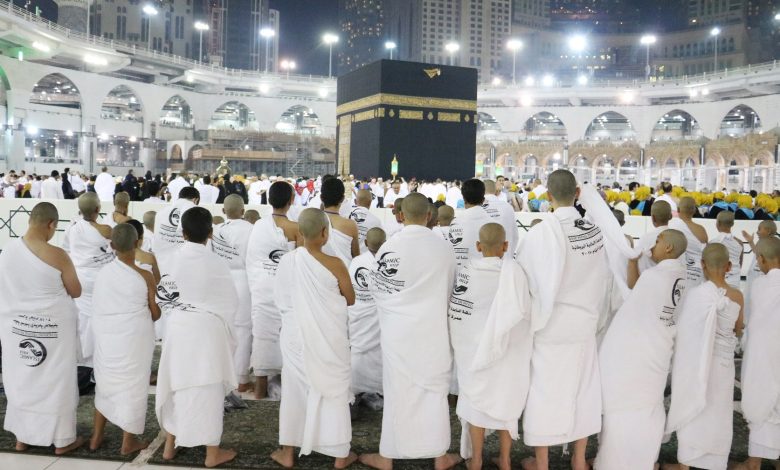The Importance of Umrah in a Muslim’s Life

Since the inception of Umrah for Orphans in 2015, over 2,200 Palestinian children have embarked on this life-changing pilgrimage to the Saudi Holy Cities of Makkah and Madinah. But what exactly is Umrah, and what are the rites that adult pilgrims and Palestinian orphans, like every other Muslim completing the Umrah journey, must follow?
Every month, different countries and ngo take a group of pilgrims on Umrah, and in January and February of next year, Insha’Allah, governments will take between 400 and 500 Palestinian orphans on the cheap Umrah package as part of the pioneering Umrah for Orphans initiative. This has been in work in many countries. They will complete Umrah rites and tour some of Islam’s most historically significant locations. Here’s a quick primer.
Ibn e Masood (may Allah be pleased with him) narrated that the Prophet (PBUH) narrated by “Follow up the Hajj and Umrah, because they surely remove poverty and sins as fire separates the impurities from iron, gold and silver.”
UMRAH
Umrah means ‘to visit a location in Arabic. It especially refers to the pilgrimage to Makkah for Muslims. Umrah is often known as the “mini” Hajj. While Hajj is one of Islam’s Five Pillars and should be undertaken at least once in a Muslim’s lifetime, Umrah is Sunnah – a custom of the Prophet (PBUH) – and may be conducted at any time of year save for Hajj’s five days. This is important to know the exact dates and days of hajj each year, respectively.
PURPOSE
The main goal of Umrah is to purify the soul of previous misdeeds. Umrah can be acted on more than once in a Muslim’s lifetime. As a pilgrim spends their income and time in the cause of Allah, Umrah is also considered as protection from poverty and the hardships of life.
TIME
Except for the specific days of Hajj, Umrah can be conducted at any time of year. Umrah completed during Ramadan is highly valuable since the blessings are increased.
The Prophet (PBUH) said that undertaking Umrah during Ramadan was comparable to completing Hajj with him (PBUH).
IHRAM
The sanctified condition of mind and body that a Muslim must enter in order to conduct Umrah. To reach the state of Ihram, pilgrims must first clean their bodies, which involves shaving, cutting nails, trimming mustaches and beards, and taking a shower (ghusl). The term Ihram also alludes to the attire required for Umrah pilgrims.
Men:
Two sheets of unstitched white material that expose areas of the body, including the head and face, arms, and ankles and feet. This implies that the attire is uniform in appearance, and no one can be identifie base on their money or social rank.
Women:
Must wear attire that covers their entire body except for their hands and face.
MIQAAT
An Arabic term that implies ‘a certain location.’ It is where those on their way to Umrah or Hajj pause to enter the state of Ihram. At this point, and before entering the holy city of Makkah, the pilgrim must declare or have declared his decision to conduct Umrah, and he will say the Talbiyah – “Labbayk Allahumma labbayk” (Here I am at your service, O Allah here I am). Ihram begins with the first recitation of the Talbiyah and continues until the Umrah is accomplish.
DISLIKED ACTS
Pilgrims must avoid activities that might lessen the benefits and, in certain situations, negate the pilgrimage while in the state of Ihram. Fighting or quarreling with others; cursing, swearing, discussing wicked subjects, and using foul language; using fragrances, using scented soaps, shampoos, lotions, wipes, and so on; cutting or removing hair or nails.
TAWAF
Pilgrims initially visit Makkah and the Masjid-ul-Haram, which houses the Ka’aba. They must do Tawaf before entering the Muthaaf (the region surrounding the Ka’aba).
Tawaf is making an anti-clockwise seven-circle of the Ka’aba. Anyone doing Tawaf must first conduct wudhu (ablution) – women on their menstruation are not permitted to perform Tawaf until they are able to perform ghusl again.
Pilgrims should touch or kiss Hajr e Aswad (the black stone) on the Ka’aba’s first corner, when the Tawaf begins. However, if the Muthaaf is too clog to do so, the Tawaf can still be accomplish without this deed. They must next do two rakats of prayer at Maqam Ibrahim.
SA’EE
The deed of Sa’ee remembers the acts of Hajra (alaihis salaam), Ibrahim’s wife, who hurried seven times between Safa and Marwah to check if she could obtain water for her baby child Ismail (alaihis salaam). Pilgrims must conduct this ceremony by either sprinting (male only) or walking as quickly as they can. It is not necessary to be in a wudhu condition to conduct this deed. The Sa’ee starts in Safa and finishes at Marwah. The distance between Safa and Marwah is one length. Each pilgrim is require to finish seven of them.





